What Does Therapeutic Grade Essential Oils Mean
Essential oils have gained popularity for their therapeutic benefits. But what does it mean for an essential oil to be considered “therapeutic grade”?
We explore the criteria for determining if an essential oil is of therapeutic oils for skin quality and how to identify these oils.
Discover the benefits of using therapeutic grade essential oils, including promoting relaxation, boosting the immune system, relieving pain, and improving skin health.
Learn about the common uses of these oils and important safety precautions to keep in mind.
Key Takeaways:
What Are Essential Oils?
Essential oils are concentrated extracts derived from various plants, capturing the chemical components that give these oils their distinct aromas and therapeutic properties.
The process of extracting essential oils involves methods such as steam distillation or pressing to carefully collect the potent essence of plants. Chemical components like terpenes, alcohols, esters, and phenols are crucial in determining the quality and benefits of these oils, influencing their fragrance, therapeutic effects, and shelf life.
Popular essential oils like Thyme, Rosemary, and Basil contain unique chemical profiles that offer different health benefits. For instance, Thyme oil is known for its antimicrobial properties, Rosemary oil for enhancing mental clarity, and Basil oil for its calming effects on the mind and body.
What Is Therapeutic Grade Essential Oil?
Therapeutic Grade Essential Oils refer to oils of the highest quality, carefully sourced and processed to maintain their purity and holistic benefits, as exemplified by Source Vital Apothecary’s premium blends.
Regarding therapeutic grade essential oils, the quality of the ingredients used plays a crucial role in the overall efficacy and safety of the product. High-quality oils are often sourced from reputable suppliers who prioritize sustainable practices and ethical sourcing.
The processing methods employed during extraction are equally important. Gentle extraction techniques, such as steam distillation or cold pressing, preserve the integrity of the plant’s natural compounds, ensuring maximum therapeutic benefits.
Companies like Source Vital Apothecary are revered in the industry for their unwavering commitment to quality. Their rigorous quality control measures and dedication to using pure, organic ingredients set them apart as a trusted provider of premium essential oils.
What Are The Criteria For Therapeutic Grade Essential Oil?
The criteria for determining Therapeutic Grade Essential Oils involve adherence to strict standards of purity, established grading systems, and certifications from organizations like the National Association of Holistic Aromatherapy (NAHA) and International Organization of Standardization (ISO).
Therapeutic Grade Essential Oils are expected to be pure and natural, without any synthetic additives or contaminants that could compromise their therapeutic properties. These oils should be extracted through methods like steam distillation or cold pressing to ensure the preservation of their beneficial compounds.
Grading systems play a crucial role in distinguishing the quality of essential oils, with ‘therapeutic grade’ indicating the highest standard of purity and potency. Organizations such as NAHA and ISO provide certifications that validate the quality and authenticity of these oils, offering consumers assurance and transparency in their purchases.
How To Determine If An Essential Oil Is Therapeutic Grade?
Determining whether an essential oil meets the criteria of being therapeutic grade requires understanding industry terminology, definitions of quality standards, and conducting thorough research on the oil’s sourcing, testing, and certifications.
When evaluating essential oils for therapeutic grade status, it’s crucial to grasp terms like ‘pure,’ ‘organic,’ and ‘wildcrafted,’ which indicate different levels of quality and sourcing methods.
Quality standards set by organizations such as the International Organization for Standardization (ISO) and the Food and Drug Administration (FDA) can help in assessing the purity and potency of essential oils.
Look for oils that are GC/MS tested, meaning they have undergone strict analytical testing to verify their chemical composition and purity.
Certifications from reputable third-party organizations like ECOCERT or USDA Organic can provide further assurance of an oil’s quality and authenticity.
What Are The Benefits Of Using Therapeutic Grade Essential Oils?
Using Therapeutic Grade Essential Oils offers a range of holistic benefits, from promoting relaxation and stress reduction to enhancing skin health and alleviating pain and inflammation.
These natural oils, carefully extracted from plants, are known for their potent properties that support the body and mind in various ways. Essential oils can be diffused to create a calming ambiance, ideal for reducing anxiety and improving sleep quality. When applied topically or inhaled, they can aid in boosting the immune system, providing relief from colds and fostering overall wellness. The antimicrobial and anti-inflammatory properties of specific oils can be beneficial for managing skin conditions and supporting a healthy complexion.
Promotes Relaxation And Reduces Stress
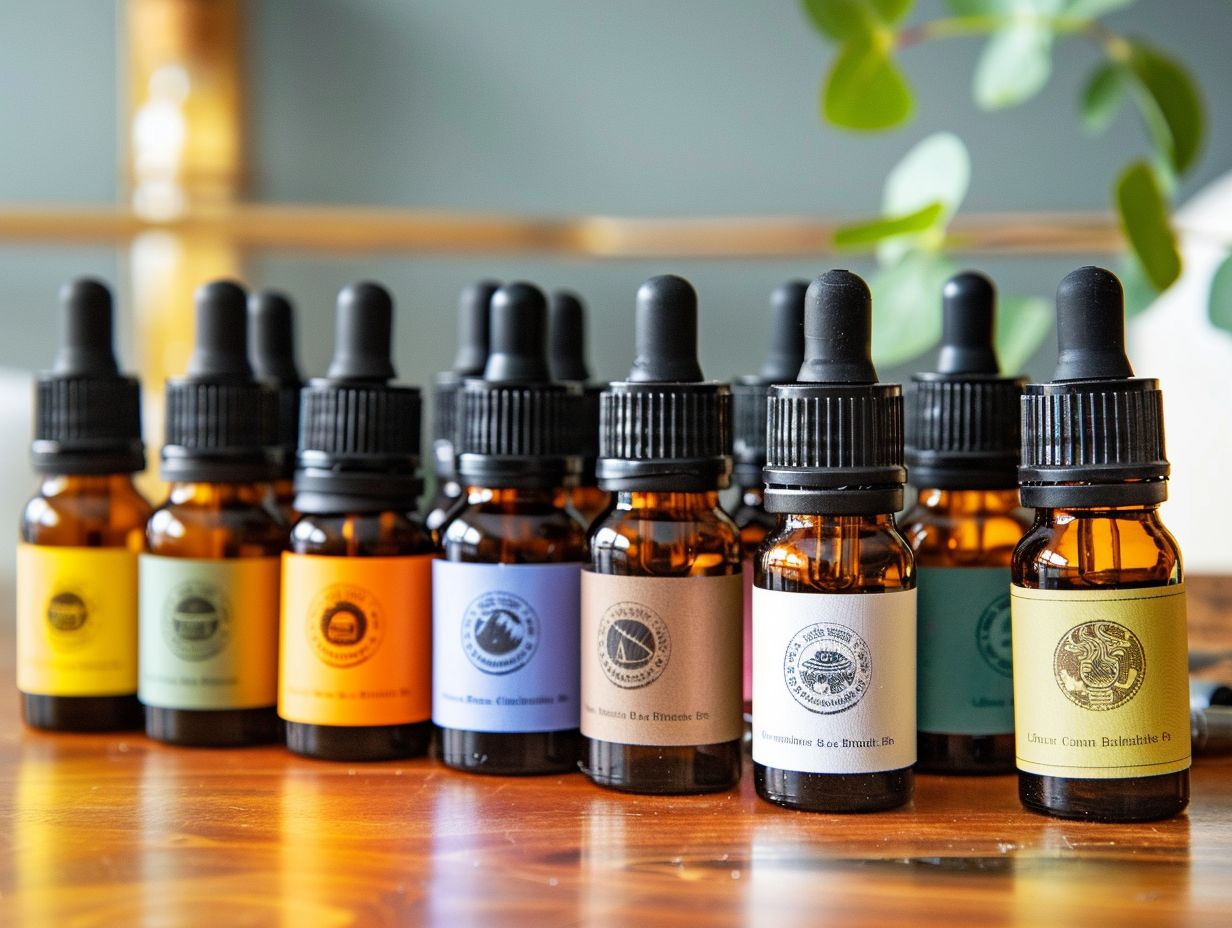
Therapeutic Grade Essential Oils are known for their ability to promote relaxation and reduce stress, often utilized in aromatherapy treatments such as the Stress Relief Aromatherapy Body Spray offered by Bella Reina Spa.
These essential oils, extracted from plants and carefully distilled to preserve their therapeutic properties, have been used for centuries as natural remedies for various ailments, including stress and anxiety. The aromatic compounds found in essential oils, like lavender, chamomile, and bergamot, have been scientifically proven to have calming effects on the mind and body.
One popular way to enjoy the benefits of these oils is through products like the Stress Relief Aromatherapy Body Spray, which can be spritzed on the skin or around the room to create a soothing ambiance. Aromatherapy has gained recognition for its positive impact on mental well-being, offering a holistic approach to relaxation and stress reduction.
Boosts Immune System
Therapeutic Grade Essential Oils, such as Tea Tree oil sourced from Australia, have immune-boosting properties that can support the body’s natural defenses and enhance overall well-being.
Tea Tree oil, also known as Melaleuca oil, has been traditionally used by indigenous Australians for its medicinal benefits, thanks to its powerful antibacterial, antiviral, and antifungal properties. This versatile essential oil is renowned for its ability to boost the immune system and fight off infections. When diffused or applied topically, Tea Tree oil can help purify the air, promote respiratory health, and provide a natural defense against environmental threats.
Relieves Pain And Inflammation
Therapeutic Grade Essential Oils are utilized for their analgesic and anti-inflammatory properties, offering natural relief from pain and inflammation without the side effects of conventional medications.
These essential oils, extracted from plants and renowned for their therapeutic benefits, provide a holistic approach to pain management. By interacting with the body’s chemistry, essential oils like Lavender, Peppermint, Eucalyptus, and Rosemary can help alleviate discomfort and reduce inflammation. Lavender oil, for instance, is known for its calming effects and can relieve headaches and muscle tension.
Peppermint oil is often used for its cooling sensation, making it beneficial for soothing sore muscles, while Eucalyptus oil is valued for its respiratory benefits and anti-inflammatory properties. Rosemary oil, with its warming qualities, can help improve circulation and alleviate joint pain.
Improves Skin Health
Therapeutic Grade Essential Oils like Lavender oil from France are recognized for their skin-nourishing properties, promoting healthy skin by addressing various skin concerns and enhancing overall skin health.
These oils boast incredible benefits for the skin, thanks to their natural healing properties. Lavender oil, in particular, stands out for its ability to soothe and calm the skin, making it ideal for those dealing with issues such as redness, irritation, or acne. By incorporating Lavender oil into your skincare routine, you can enjoy its anti-inflammatory and antibacterial properties, helping to reduce acne and prevent future breakouts. The aromatherapy benefits of therapeutic grade oils like Lavender can also promote relaxation and reduce stress, which can further improve skin conditions.
What Are The Common Uses Of Therapeutic Grade Essential Oils?
Therapeutic Grade Essential Oils find common uses in aromatherapy, topical applications for skincare and massage, as well as internal consumption for health and wellness benefits.
These essential oils have gained immense popularity for their natural healing properties and calming effects. Whether diffused in the air to create a relaxing ambiance, mixed into skincare products to improve complexion and address skin concerns, blended with carrier oils for soothing massages, or ingested in a controlled manner to support overall well-being, therapeutic grade essential oils offer a holistic approach to health and self-care.
Aromatherapy
Aromatherapy, utilizing therapeutic grade essential oils, offers a natural way to promote relaxation, improve mood, and address various physical and emotional ailments through the inhalation or diffusion of aromatic oils.
Therapeutic grade oils used in aromatherapeutic practices are carefully distilled from plants, flowers, and herbs to harness their potent healing properties. These oils are often diluted with carrier oils and applied topically, added to baths, or used in massages to enhance their benefits. Aromatherapy is known to reduce stress, alleviate anxiety, and improve sleep quality. It can also aid in pain management and enhance cognitive function. Some popular essential oils used in aromatherapy include lavender for relaxation, peppermint for mental clarity, and tea tree for its antiseptic properties.
Topical Application
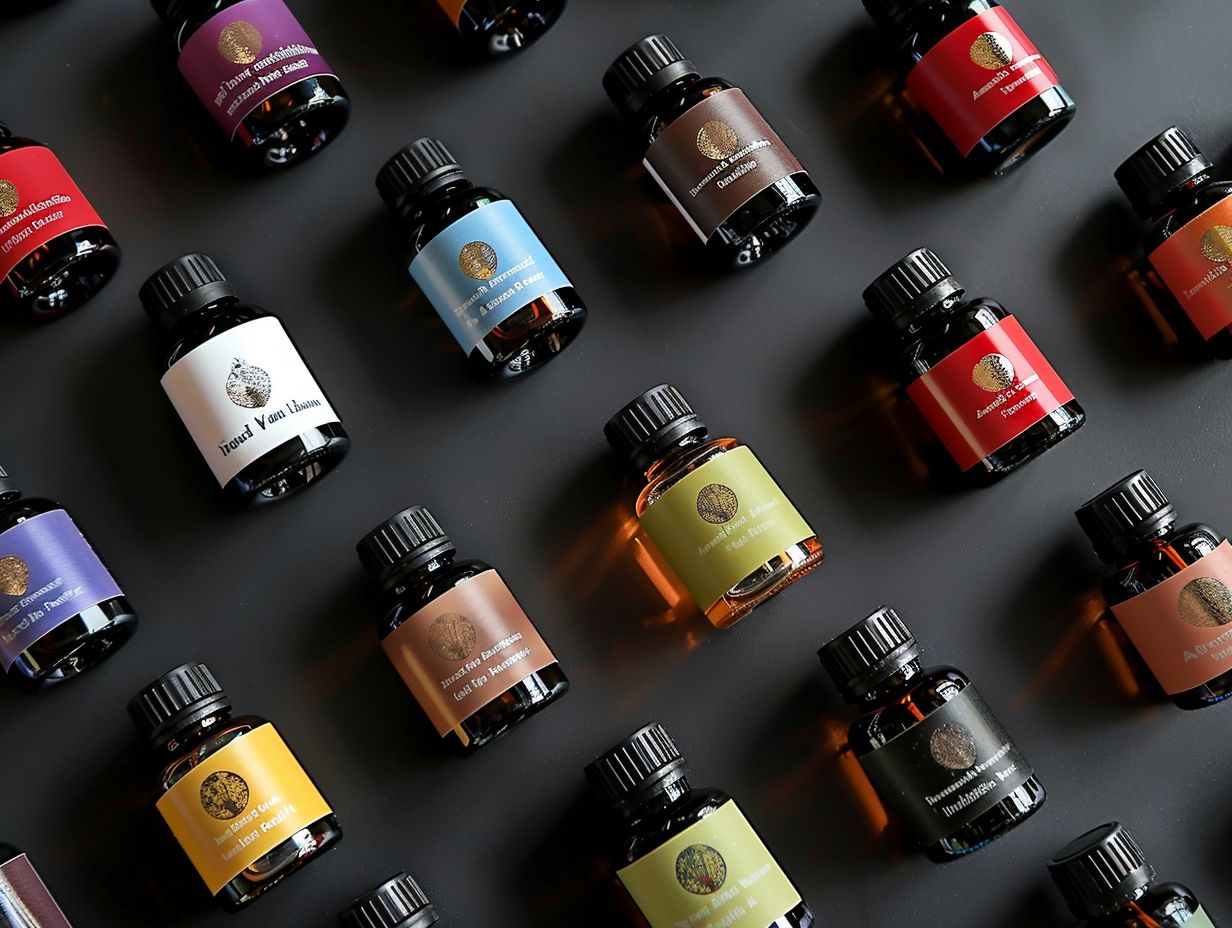
Topical application of therapeutic grade essential oils involves diluting the oils with carrier substances and applying them directly to the skin, harnessing the oils’ beneficial properties for skincare, massage, and localized relief.
Proper dilution is crucial when using essential oils topically to prevent skin irritation or sensitivity. Carrier oils such as coconut, almond, or jojoba oil serve as excellent mediums to dilute essential oils. They not only help in evenly spreading the essential oil over the skin but also provide additional nourishment and hydration. This method of application allows the oils to penetrate the skin and reach the bloodstream, offering therapeutic benefits.
Internal Consumption
Internal consumption of select therapeutic grade essential oils, following guidelines from programs like the USDA’s National Organic Program (NOP), can offer targeted health benefits, support digestive wellness, and enhance overall vitality.
Regarding safe practices for ingesting essential oils, it is crucial to emphasize the importance of using high-quality, pure oils that are specifically labeled for internal use. Certifications such as the Certified Pure Therapeutic Grade (CPTG) ensure that the oils have been rigorously tested and are free from harmful contaminants. These certifications provide a level of assurance regarding the purity and potency of the oils, making them suitable for internal consumption.
Consuming therapeutic grade oils can have a range of positive impacts on the body. For example, certain oils like peppermint or ginger may help ease occasional stomach discomfort and support healthy digestion. Others, like lemon or grapefruit, can be refreshing and invigorating when taken internally. The key is to use them responsibly and in moderation, always following recommended guidelines and dosages.
What Are The Safety Precautions When Using Therapeutic Grade Essential Oils?
When using Therapeutic Grade Essential Oils, it is essential to observe safety precautions such as proper dilution, patch testing for allergic reactions, and consulting with a healthcare professional, especially for internal use.
Proper dilution of essential oils is crucial to avoid skin irritations and sensitivities. A typical guideline is to use a carrier oil like coconut or jojoba oil to dilute the essential oil. This helps in reducing the potency of the essential oil and minimizing the risk of adverse reactions.
Patch testing before applying essential oils topically is recommended to check for any allergic reactions. Apply a small amount of diluted oil on a small area of skin and observe for any redness, itching, or irritation for at least 24 hours.
If considering internal use of essential oils, seeking guidance from a healthcare professional is highly advised. They can provide tailored advice based on individual health conditions and potential interactions with medications.
Regulatory bodies like the FDA oversee the quality and safety of essential oils in the market. Checking for reputable brands that comply with regulations ensures product authenticity and high standards in manufacturing.
Dilute Properly
Diluting essential oils properly is crucial to prevent skin irritations and sensitivities, especially when using concentrated therapeutic grade oils that may require different dilution ratios than cosmetic grade oils.
Regarding diluting essential oils, understanding the proper ratios is key. For therapeutic grade oils, which are highly concentrated and potent, it is recommended to dilute them more than cosmetic grade oils to ensure safe use. Typically, a 2-3% dilution ratio is suitable for most adults when using essential oils topically. This means you would add about 12 drops of essential oil per ounce of carrier oil.
On the other hand, cosmetic grade oils, which are often already diluted or blended with carrier oils, may require less dilution for direct skin application. It is important to check the product labels for specific dilution instructions.
When diluting essential oils, remember to use high-quality carrier oils, such as coconut oil or jojoba oil, to minimize the risk of skin reactions. Mixing essential oils with a carrier oil not only dilutes the potency but also helps in better absorption by the skin.
Patch Test Before Use
Conducting a patch test before using therapeutic grade essential oils helps identify potential allergic reactions or sensitivities, ensuring safe usage of these potent oils, distinct from fragrance oils that may contain synthetic components.
During a patch test, a small amount of diluted essential oil is applied to a patch of skin, typically on the forearm or inner elbow. This is then covered with a bandage or adhesive plaster and left on for 24 hours. It is essential to avoid washing the area or getting it wet during this period to accurately assess any potential reaction.
Consult With A Professional
Seeking advice from a qualified professional, knowledgeable in essential oils and their therapeutic benefits, can help tailor usage recommendations to individual needs and prevent misinformation often associated with aggressive marketing tactics.
When looking into the world of essential oils, it’s essential to be cautious of extravagant marketing claims that may not have scientific backing. Many products are promoted with exaggerated promises, so being well-informed is crucial to avoid falling for misleading tactics.
- When looking for guidance, always seek out experienced aromatherapists, herbalists, or healthcare providers with specialized training in essential oils.
- Reputable professionals will prioritize your safety and well-being by providing personalized advice tailored to your specific health concerns and goals.
- Remember that individual responses to essential oils vary, and a customized approach can maximize the benefits while minimizing potential risks.
Frequently Asked Questions
What Does Therapeutic Grade Essential Oils Mean?
Therapeutic grade essential oils refer to oils that are specifically produced and processed to maintain the highest quality and purity for therapeutic use.
What makes an essential oil therapeutic grade?
An essential oil can only be considered therapeutic grade if it meets strict standards for purity, potency, and quality. This includes proper sourcing, extraction methods, and testing.
How are therapeutic grade essential oils different from other essential oils?
Therapeutic grade essential oils are regulated and must meet specific standards, while other essential oils may not have the same level of quality control. This can affect the therapeutic benefits and potential side effects of the oil.
Are all essential oils therapeutic grade?
No, not all essential oils are considered therapeutic grade. Some may be diluted with synthetic materials or may not undergo the same strict testing and quality control processes as therapeutic grade oils.
Can I use therapeutic grade essential oils for aromatherapy?
Yes, therapeutic grade essential oils are often used in aromatherapy due to their high quality and purity. They are known to have beneficial effects on the mind and body when inhaled or applied topically.
How can I ensure I am purchasing therapeutic grade essential oils?
To ensure you are purchasing therapeutic grade essential oils, look for reputable brands that provide information on the sourcing, production, and testing of their oils. You can also look for certifications such as Certified Pure Therapeutic Grade or organic certifications.

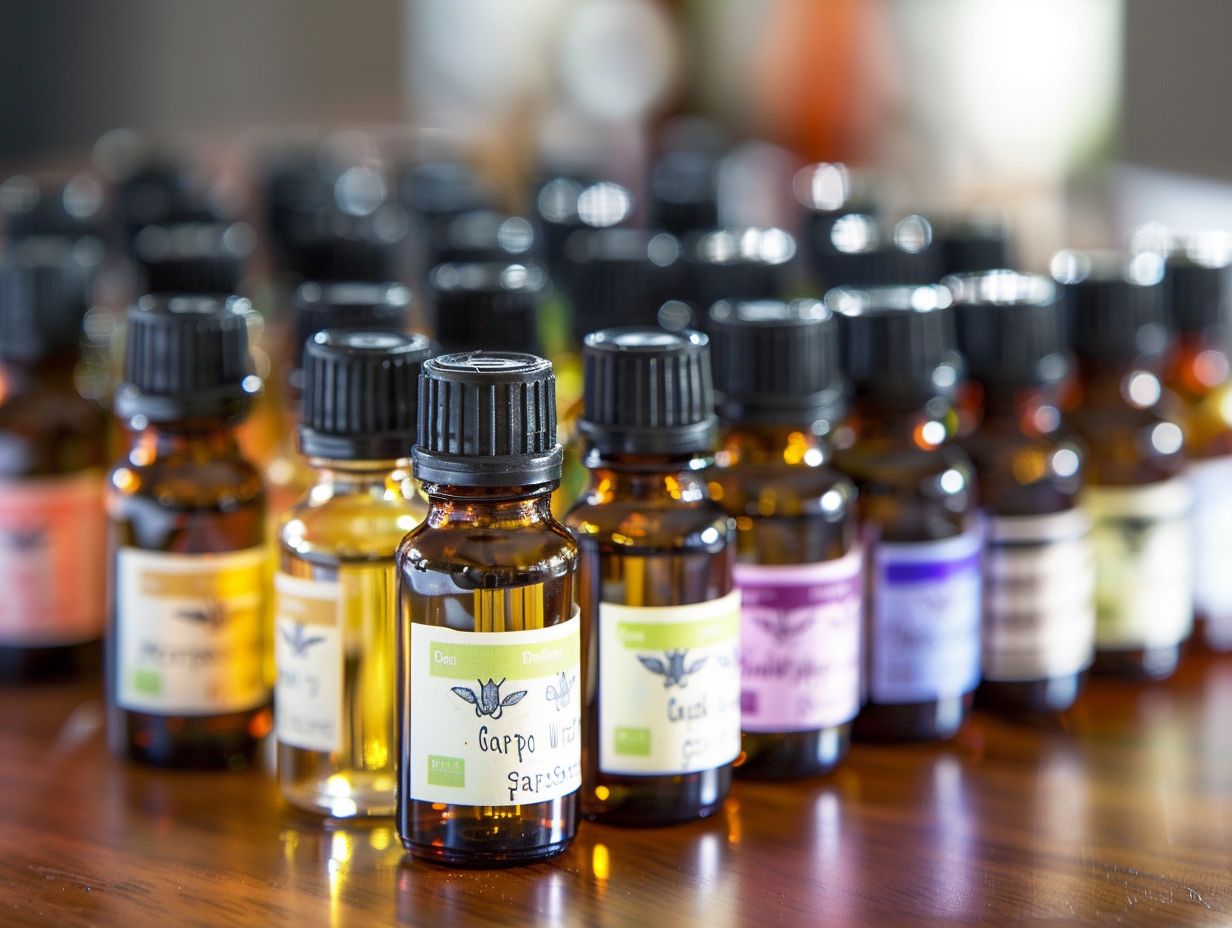
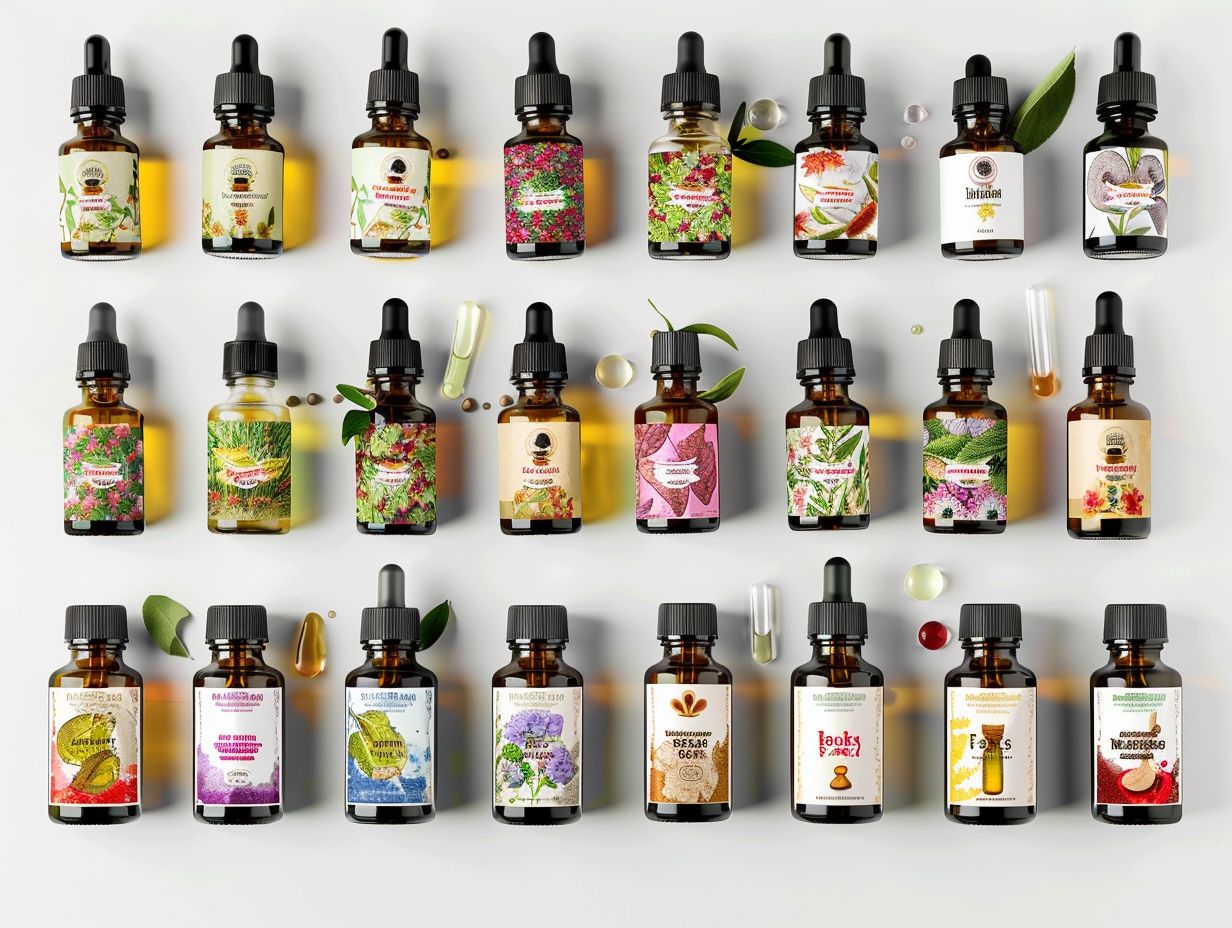

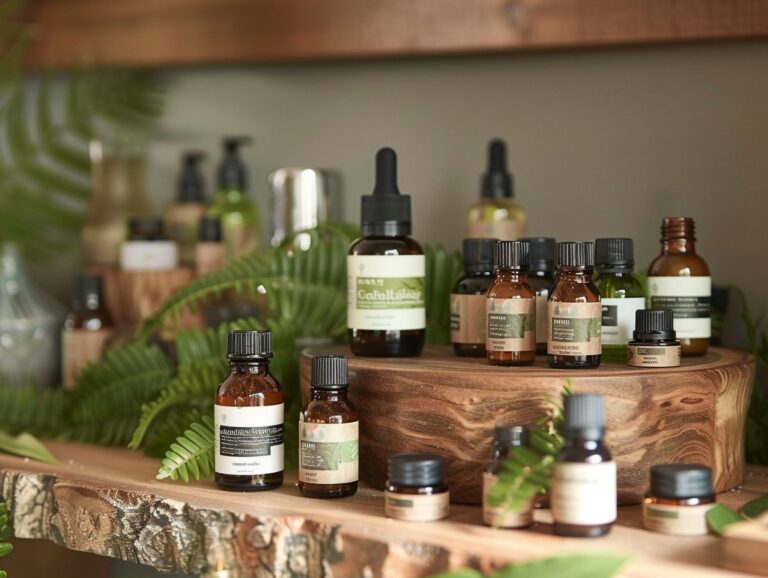
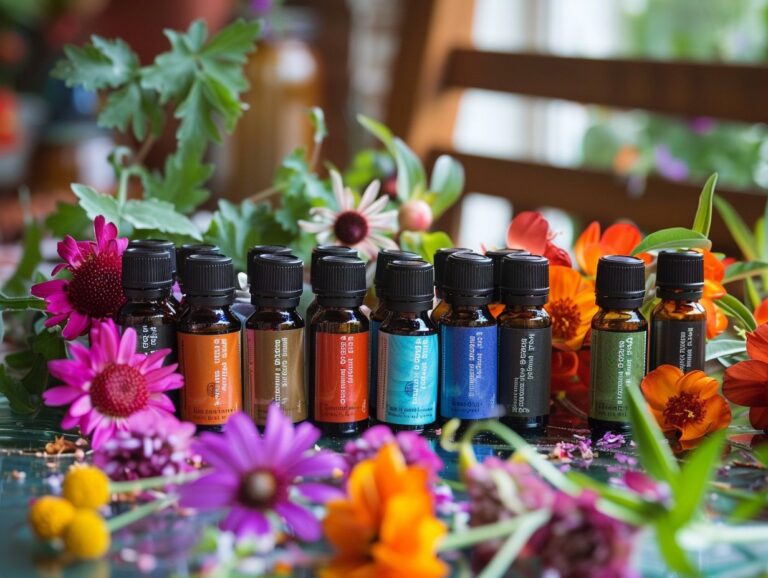


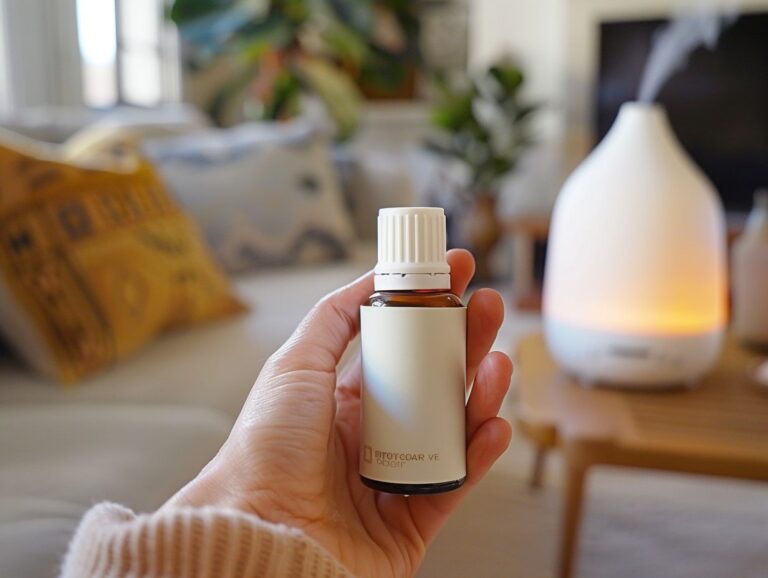
One Comment